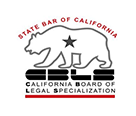Some foreign-born individuals working in California could have an easier time applying for and extending their work visas. The Department of Homeland Security announced some changes to immigration regulations that could benefit citizens of Australia, Chile, Singapore and the Commonwealth of the Northern Mariana Islands. They were announced on Jan. 15 as a final rule published in the Federal Register.
Obstacles that once got in the way of CW-1, E-3, E-B1 and H-1B1 workers’ ability to continue working after their initial visas expired have been eliminated with the final rule. These workers will now be allowed to keep working for as many as 240 days after their visas have expired as long as a petition for an extension of status has been filed and is pending. The change will benefit workers as well as their employers by allowing work to continue without interruptions. In the past, foreign workers were often forced to travel home in order to renew their work visas.
Another change that was included in the DHS final rule is a comparable evidence provision for EB-1 outstanding professors and researchers. The evidence requirements for applicants in this category will now be less stringent, which could allow U.S. employers to recruit more workers in this visa category.
An employer who would like to hire foreign workers for positions in the U.S. may want to discuss those plans with an immigration attorney. After looking at each worker’s qualifications, an attorney may be able to help the employer to identify the appropriate visas to petition for. When a foreign worker’s immigration status is expiring, an attorney may help the employer to petition for an extension.




